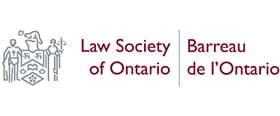The accused was stopped by police who were in the vicinity of a Night Club.
The police were investigating “possible impaired drivers” in the area. The accused was stopped by a officer of the Ontario Provincial Police.
While traveling directly behind the accused, the officer observed the motor vehicle drifting from left to right in its lane with it’s left and right tires touching the broken lines dividing lanes one and two, and lanes two and three.
The officer activated the emergency lights of the police car and the accused vehicle began breaking with its left indicator activated, pulling towards the right shoulder.
When the police officer approached the car he stuck his head into the drivers compartment and could smell a strong odour of an alcoholic beverage and freshly burnt marijuana.
The accused stated that he did not consume any alcoholic beverages that night but that his passenger did. The officer had suspicion that the driver of the motor vehicle had consumed alcohol and made a breath demand for a test in the Approved Screening Device, an instrument for breathalyzer testing.
The officer provided the accused twelve opportunities to blow in to the breath machine and to provide a breath sample, and each time they were unsuccessful.
The police officer consequently arrested the accused for failure to provide a suitable sample in the approved screening device contrary to section 254 (5) of the Criminal Code of Canada.
At trial, Toronto Criminal Lawyer Nicholas Charitsis cross examined the police officer about the incident. There were no other officers on the scene and the police car was not equipped with a video recording device to capture the incident on camera. The police officer relied on his notes that were made over nine (9) months before the trial date.
In cross examination the police officer admitted that Mr. S. “may have been coughing throughout the incident”. After cross examining the police officer, Charitsis called the accused to testify.
The accused explained to the court that he suffers from chronic allergies during ragweed season and was suffering from these allergies the day he was pulled over the police officer.
He explained that his allergies made it difficult to blow for more than two or three seconds in the approved screening device and therefore he could not the machine to register a reading.
The accused testified that he did not say anything to the officer about his allergies the night of the arrest because “the police officer never asked and didn’t think it was necessary to go through my whole medical history.”
Justice Gadge considered all of the evidence at the trial and ruled that since there was no outright refusal. The accused had given a medical defence and explanation as to why he could not blow into the machine, even though the police officer showed him how to do it. There was a reasonable excuse presented by Toronto Criminal Lawyer Nicholas Charitsis.
Case Dismissed for a medical defence to the charge of refuse breath test.


 Experience counts in criminal defence.
Experience counts in criminal defence.


